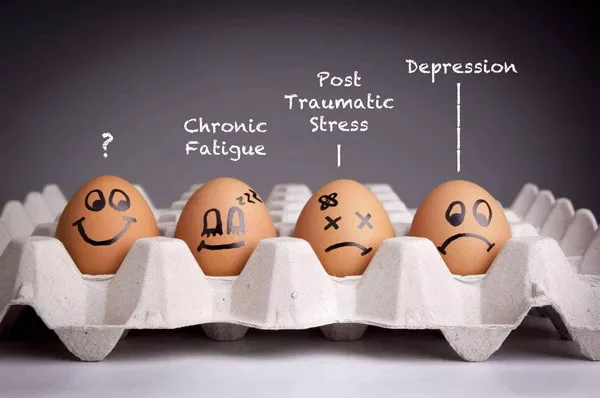Schizophrenia, a complex and severe mental disorder, poses a unique set of challenges for individuals, their families, and the healthcare system. Characterized by distorted thinking, hallucinations, and impaired emotional responses, schizophrenia often requires comprehensive and timely intervention. However, a controversial question looms: is it acceptable to leave schizophrenia untreated? In this article, we delve into the intricacies of this dilemma, exploring the consequences, controversies, and ethical considerations surrounding the decision to forgo treatment.
Understanding Schizophrenia
Before delving into the debate, it is crucial to understand the nature of schizophrenia. This psychiatric disorder affects approximately 1% of the global population and manifests in various ways, making it a heterogeneous condition. The hallmark symptoms include hallucinations, delusions, disorganized thinking, and impaired cognitive functions. Individuals with schizophrenia often struggle with social interactions, impacting their ability to maintain relationships and hold down jobs.
The Consequences of Untreated Schizophrenia
Deterioration of Cognitive Function: One of the primary consequences of leaving schizophrenia untreated is the progressive deterioration of cognitive function. Studies have shown that without proper intervention, individuals with schizophrenia may experience a decline in memory, attention, and problem-solving skills.
Social Impairment and Isolation: Untreated schizophrenia can lead to severe social impairment, as individuals may find it challenging to connect with others. This isolation can exacerbate the symptoms of the disorder and contribute to a decline in overall mental health.
Increased Risk of Substance Abuse: Research indicates a strong correlation between schizophrenia and substance abuse. Without appropriate treatment, individuals may turn to drugs or alcohol as a means of self-medication, further complicating their mental health and increasing the risk of co-occurring disorders.
Higher Likelihood of Relapse: Schizophrenia is characterized by a pattern of relapses and remissions. Leaving the disorder untreated significantly increases the likelihood of relapse, with each recurrence potentially leading to more severe symptoms and functional impairment.
Impact on Physical Health: Untreated schizophrenia is associated with neglect of physical health. Individuals may disregard basic self-care, leading to issues such as poor nutrition, lack of exercise, and inadequate sleep, which can contribute to a decline in overall well-being.
Controversies Surrounding Treatment Approaches
Medication and Its Side Effects: Antipsychotic medications are the primary treatment for schizophrenia. However, controversies arise regarding their long-term use and potential side effects. Some argue that the adverse effects, including weight gain, metabolic changes, and movement disorders, outweigh the benefits, leading individuals to resist or discontinue medication.
Stigma and Lack of Insight: The stigma associated with mental illness often deters individuals from seeking or accepting treatment. Moreover, those with schizophrenia may lack insight into their condition, making it challenging to adhere to a treatment plan. This raises ethical questions about the role of coercion in ensuring individuals receive the care they need.
Psychosocial Interventions: In addition to medication, psychosocial interventions play a crucial role in the treatment of schizophrenia. Controversies surround the availability and effectiveness of these interventions, such as cognitive-behavioral therapy, social skills training, and supported employment. Critics argue that the focus on pharmaceutical solutions may overshadow the importance of holistic, person-centered care.
Personal Autonomy vs Paternalism: The decision to leave schizophrenia untreated often intersects with the ethical dilemma of balancing personal autonomy and paternalistic intervention. Advocates for autonomy argue that individuals have the right to make decisions about their own treatment, even if those decisions may lead to negative outcomes. On the other hand, proponents of paternalism emphasize the responsibility of healthcare professionals to protect individuals from harm, raising questions about the limits of autonomy in mental health care.
Ethical Considerations in the Context of Untreated Schizophrenia
Informed Consent and Capacity: Ensuring informed consent is challenging when dealing with individuals with schizophrenia, particularly if they lack insight into their condition. Balancing respect for autonomy with the need for protection requires a nuanced understanding of capacity assessment and the ethical implications of overriding a patient’s preferences for their own well-being.
The Role of Coercion: In cases where individuals with schizophrenia refuse treatment, the question of coercion arises. What level of coercion is ethically justifiable to prevent harm to the individual or others? Striking the right balance between respecting autonomy and preventing harm is an ongoing ethical challenge in mental health care.
Resource Allocation and Access to Treatment: The ethical dimensions of leaving schizophrenia untreated extend to the broader societal context. Issues of resource allocation, disparities in access to mental health care, and the impact of untreated mental illness on public safety raise questions about social responsibility and the duty to provide adequate mental health services.
See Also:Is OCD and Schizophrenia Related?
Long-Term Outcomes and Quality of Life: Ethical considerations also encompass the long-term outcomes and quality of life for individuals with untreated schizophrenia. Is it ethically justifiable to prioritize short-term autonomy over long-term well-being? Addressing this question requires a careful examination of the values and priorities that underpin mental health care ethics.
Conclusion: Striking a Balance in Schizophrenia Treatment
In navigating the complex terrain of leaving schizophrenia untreated, it is essential to consider the multifaceted consequences, controversies, and ethical considerations that surround this decision. Striking a balance between respecting individual autonomy and preventing harm requires a collaborative and person-centered approach to mental health care.
As research advances and our understanding of schizophrenia deepens, the field must continue to evolve to provide more effective, targeted, and humane interventions. The ethical challenges associated with leaving schizophrenia untreated underscore the need for ongoing dialogue, research, and advocacy to shape mental health policies that prioritize the well-being of individuals with schizophrenia while respecting their autonomy. Ultimately, the pursuit of compassionate, evidence-based care remains paramount in addressing the complexities of schizophrenia treatment.
Related Topics:
Why Does Sadness Peak at Night?
How Do You Calm a Panic Attack at Night?
What Does Undiagnosed Bipolar Look Like in Adults?


